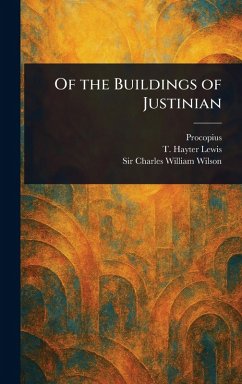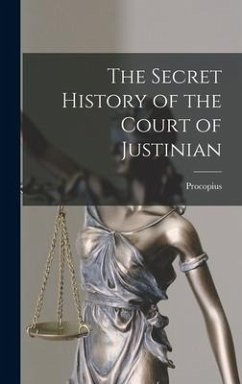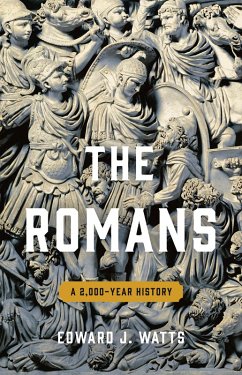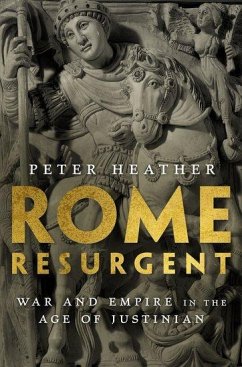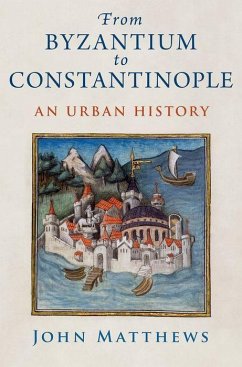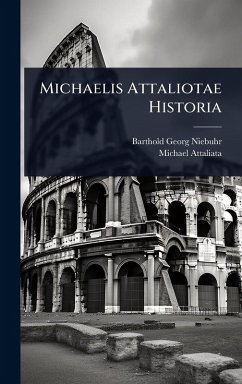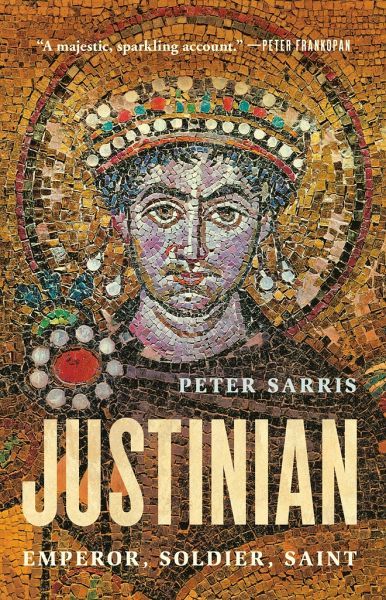
Justinian
Emperor, Soldier, Saint
Versandkostenfrei!
Versandfertig in über 4 Wochen
26,99 €
inkl. MwSt.

PAYBACK Punkte
13 °P sammeln!
"In the sixth century CE the East Roman (or "Byzantine") Emperor Justinian presided over nearly four decades of remarkable change. From his capital of Constantinople, he directed armies to re-conquer territories that had been lost to Roman control in the fifth century, while also taking on the neighboring superpower of Persia. Most histories of Justinian's reign focus on these military exploits, and on the unprecedented persecution of religious and sexual minorities that earned him the epithet "Demon King." In Justinian Cambridge historian Peter Sarris argues that the emperor's achievements we...
"In the sixth century CE the East Roman (or "Byzantine") Emperor Justinian presided over nearly four decades of remarkable change. From his capital of Constantinople, he directed armies to re-conquer territories that had been lost to Roman control in the fifth century, while also taking on the neighboring superpower of Persia. Most histories of Justinian's reign focus on these military exploits, and on the unprecedented persecution of religious and sexual minorities that earned him the epithet "Demon King." In Justinian Cambridge historian Peter Sarris argues that the emperor's achievements were more fundamental and diverse. Justinian oversaw the formalization of Roman law, creating a body of law that survived into the Middle Ages and, to this day, forms the basis of legal systems across much of Europe. Through his energetic reform program, and his energetic self-glorification, Justinian redefined what it meant to rule, providing a model of active statecraft to which future Byzantine and Holy Roman emperors, medieval kings, and even Muslim caliphs and Ottoman sultans, would aspire. And yet, in recasting Roman society as an "Orthodox Republic," one in which his vision of the true Christian faith would prevail, Justinian laid the foundations for the exclusions and persecutions that characterized Medieval Christendom. Drawing on the latest scholarship, Justinian provides a panoramic history of the emperor's life and reign, shining new light on both the context of Justinian's program of imperial renewal and his true priorities. Justinian aimed to restore the majesty of the Roman Empire and the power of the emperor, whom he believed to be appointed by God. The same religious and moral agenda that earned him his reputation as a demonic tyrant also inspired him to seek to improve the lot of humbler members of Roman society, and especially of women, on behalf of whom his wife, the Empress Theodora, lobbied him persistently. The book also examines the vast impersonal forces that threatened to shake Justinian's empire to its very foundations, including a dramatic period of climate change and, most devastatingly of all, bubonic plague, which wiped out, by some estimates, half the population of Constantinople. Justinian provides a radical reassessment of an emperor's legacy and achievement. Even as Justinian sought to recapture Rome's past greatness, he paved the way for what would follow"--






